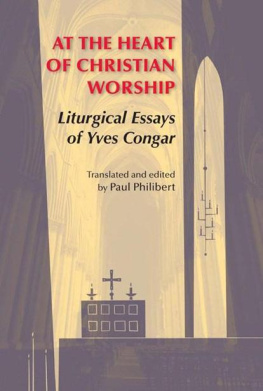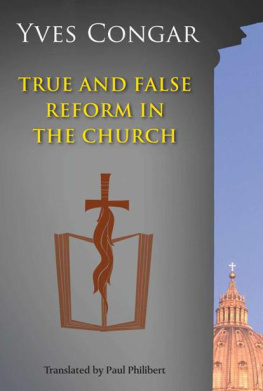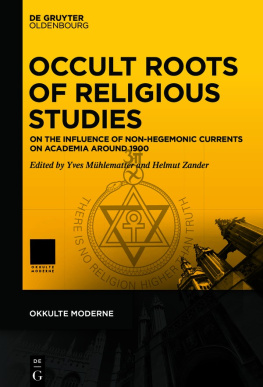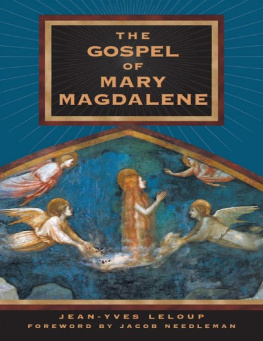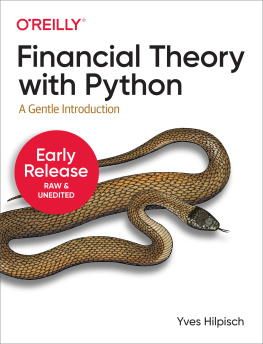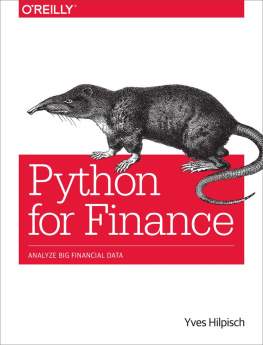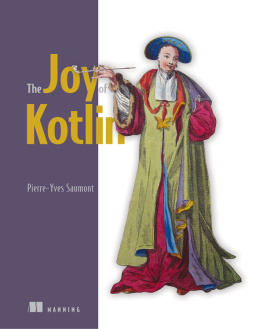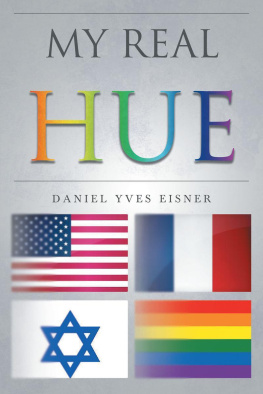Yves Congar - The Meaning of Tradition
Here you can read online Yves Congar - The Meaning of Tradition full text of the book (entire story) in english for free. Download pdf and epub, get meaning, cover and reviews about this ebook. year: 2017, publisher: Ignatius Press, genre: Religion. Description of the work, (preface) as well as reviews are available. Best literature library LitArk.com created for fans of good reading and offers a wide selection of genres:
Romance novel
Science fiction
Adventure
Detective
Science
History
Home and family
Prose
Art
Politics
Computer
Non-fiction
Religion
Business
Children
Humor
Choose a favorite category and find really read worthwhile books. Enjoy immersion in the world of imagination, feel the emotions of the characters or learn something new for yourself, make an fascinating discovery.
- Book:The Meaning of Tradition
- Author:
- Publisher:Ignatius Press
- Genre:
- Year:2017
- Rating:5 / 5
- Favourites:Add to favourites
- Your mark:
- 100
- 1
- 2
- 3
- 4
- 5
The Meaning of Tradition: summary, description and annotation
We offer to read an annotation, description, summary or preface (depends on what the author of the book "The Meaning of Tradition" wrote himself). If you haven't found the necessary information about the book — write in the comments, we will try to find it.
The Meaning of Tradition — read online for free the complete book (whole text) full work
Below is the text of the book, divided by pages. System saving the place of the last page read, allows you to conveniently read the book "The Meaning of Tradition" online for free, without having to search again every time where you left off. Put a bookmark, and you can go to the page where you finished reading at any time.
Font size:
Interval:
Bookmark:
THE MEANING OF TRADITION
YVES CONGAR, O.P.
OF
TRADITION
Translated from the French by A.N. Woodrow
With a Foreword by
Avery Cardinal Dulles, S.J.
IGNATIUS PRESS SAN FRANCISCO
Original French edition: La Tradition et la vie de IEglise
Editions du Cerf, Paris
Original English edition
1964 by Hawthorn Books, New York
All rights reserved
Published with ecclesiastical approval
Cover art:
Pentecost . Enamel from the Verdun alterpiece. 12th c. (detail)
Nicolas of Verdun (c. 11501205)
Sammlungen des Stiftes, Klosterneuburg Abbey, Austria
Erich Lessing / Art Resource, New York
Cover design by Roxanne Mei Lum
Published in 2004 by Ignatius Press, San Francisco
This edition published by permission of Editions du Cerf, Paris
Foreword 2004 by Ignatius Press
ISBN 978-1-58617-021-9 (PB)
ISBN 978-1-68149-748-8 (EB)
Library of Congress Control Number 2004103527
Printed in the United States of America
The Primary Meaning, Broad yet Precise
Tradition in the strict sense
Tradition as a means of communication other than by writing
Tradition as a source of knowledge other than Scripture
The Holy Spirit: Transcendent Subject of Tradition
The Church: Visible and Historical Subject of Tradition
The Church is a complex organic reality
The Magisterium of the hierarchy: The chief subject of tradition
The faithful
Living tradition: The Catholic spirit
Scripture and Tradition
Tradition as an original and different means
The respective qualities of Scripture and tradition
Tradition as objectively containing things not contained in Scripture
Tradition as a Development through History
The Monuments
The liturgy
The Fathers of the Church
Tradition and Its Monuments: Continuity and Separation
Tradition at the Center of the Church
The Problem of Tradition Today
As the twentieth century recedes into history, the profiles of its theological giants loom ever larger. Yves Congar was one of those giants. Born at Sedan in 1904, he became a seminarian in Paris in 1921, entered the Dominican novitiate in 1925 and received priestly orders in 1930. In 1937 he published Chretiens desunis , a study of the ecumenical movement, as the first volume of a series that he himself edited: Unam Sanctam. In the following two decades, he became chiefly known for his work on ecclesiology. Regarded in some circles as a dangerous innovator, he was treated with suspicion and had to endure suspension from teaching and occasional banishment from France during the 1950s.
In 1959 Pope John XXIII restored Congars good name by appointing him a theological consultant to the preparatory commission for the Second Vatican Council. At the Council itself, Congars influence was equal to, and perhaps greater than, that of any other Catholic theologian. His influence is manifest in the Councils teaching on Revelation, on the Church, on the laity, on ecumenism, on missiology and on many other topics.
After the Council, Congars health was affected by a degenerative sclerosis, but he remained extremely productive almost until his death in 1995. His last major work was a three-volume study of the Holy Spirit. In recognition of his achievements, Pope John Paul II made him a cardinal in 1994.
While working for the Council, Congar collaborated in the study on Tradition and Traditions conducted under the auspices of the Faith and Order Commission of the World Council of Churches. In 1960 and 1963 he published the two volumes of his Tradition and Traditions , which many consider to be his most important publication.
The Second Vatican Council set forth the Catholic doctrine of tradition in the second chapter of its Constitution on Divine Revelation. That chapter stands among the principal accomplishments of the Council. Robert Imbelli once wrote: Were I asked to state briefly the major theological achievement of the Second Vatican Council, I would unhesitatingly reply: the recovery of tradition .
Four centuries earlier, the Council of Trent had formulated the Catholic theology of tradition in opposition to the Protestant idea of Scripture alone. In upholding irreversible apostolic traditions, the authors of that decree evidently had in mind beliefs such as the perpetual virginity of Mary and practices such as infant baptism and the sign of the cross, which were not attested in Scripture but seemed to go back to the very beginnings of Christianity. Catholic theologians in the post-Tridentine period came to view tradition as a second source, parallel to Scripture, transmitting truths explicitly revealed to the apostles but not consigned to writing in the canonical Scriptures.
This concept of tradition, however, was not adequate to deal with dogmas such as the Immaculate Conception, which emerged as a popular Catholic belief only in the second millennium and was first defined as Catholic dogma in 1854. Some Catholic theologians, perceiving this insufficiency in the accepted Catholic theology of tradition, began to grope for a more open and dynamic concept.
Carrying the new tendency to an extreme, the Modernists devised an evolutionary theory of doctrine in which tradition functioned as a principle of transformation. But in this theory Christ became a mere point of departure for a revelatory process that went far beyond him and the apostles. Not surprisingly, Modernism was condemned as a heresy.
At the beginning of the twentieth century, Maurice Blondel sought to carve out a middle path between post-Tridentine and Modernist theories of tradition. The true theory, he maintained, should be neither pure flux nor static permanence, neither Procrustean nor Protean, neither veterist nor modernist. To his lasting credit, he rediscovered the capacity of tradition to transmit what was already known in an implicit way but not yet formulated in conceptual terms.
Yves Congar revisited the whole problem of tradition in the light of his vast knowledge of the Church Fathers, the medieval Doctors and modern ecumenical literature. While standing in the footsteps of Blondel, he greatly enriches the theological dimensions.
For Congar, tradition is a real, living self-communication of God. Its content is the whole Christian reality disclosed in Jesus Christ, including the implicit contents of that disclosure. The Holy Spirit is the transcendent subject of tradition; the whole Church is its bearer. Thus tradition is an essentially social and ecclesial reality; its locus is the Church as a communion. It is transmitted not only by written and spoken words but equally by prayer, sacramental worship and participation in the Churchs life. Tradition, while consisting primarily in the process of transmission, is not sheer process. Its content is expressed to a greater or lesser degree in a variety of documents and other monuments, as Congar calls them. Interacting with the consciousness of those who receive it, tradition develops and is enriched in the course of centuries. Continual meditation on the inspired Scriptures on the part of those who obey the Gospel gives rise to new insights as to what was tacitly communicated in the original Revelation. The Churchs teaching office, or Magisterium, has the commission to supervise the process of transmission, to stigmatize errors and to define revealed truths as they become clear to the believing Church.
Next pageFont size:
Interval:
Bookmark:
Similar books «The Meaning of Tradition»
Look at similar books to The Meaning of Tradition. We have selected literature similar in name and meaning in the hope of providing readers with more options to find new, interesting, not yet read works.
Discussion, reviews of the book The Meaning of Tradition and just readers' own opinions. Leave your comments, write what you think about the work, its meaning or the main characters. Specify what exactly you liked and what you didn't like, and why you think so.


